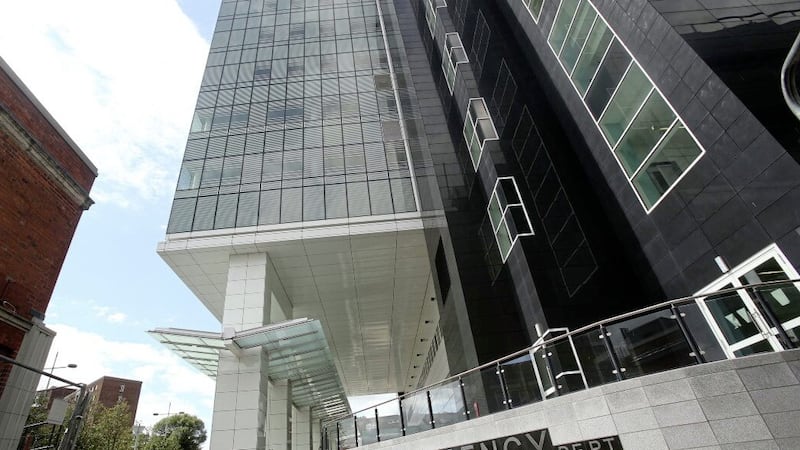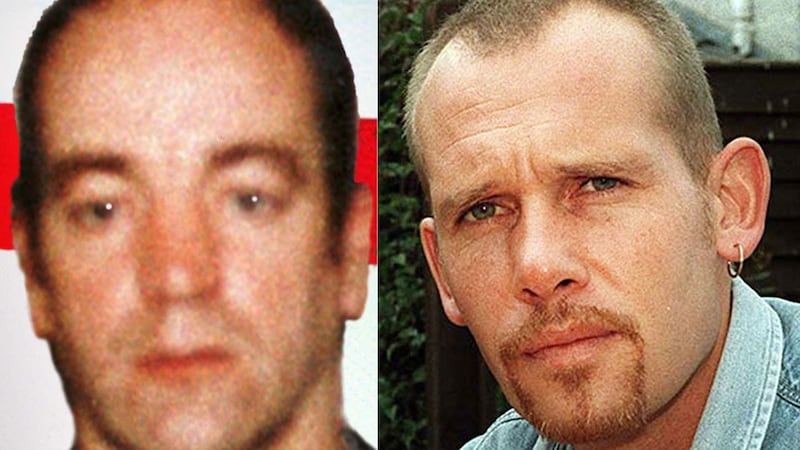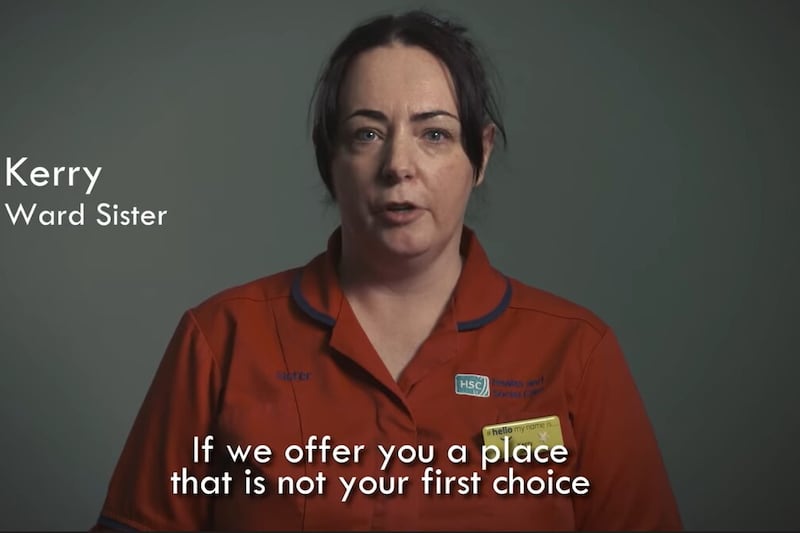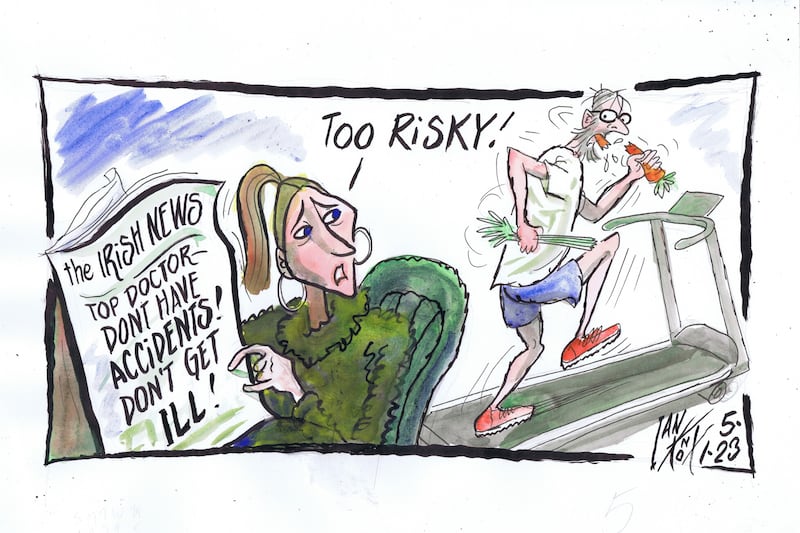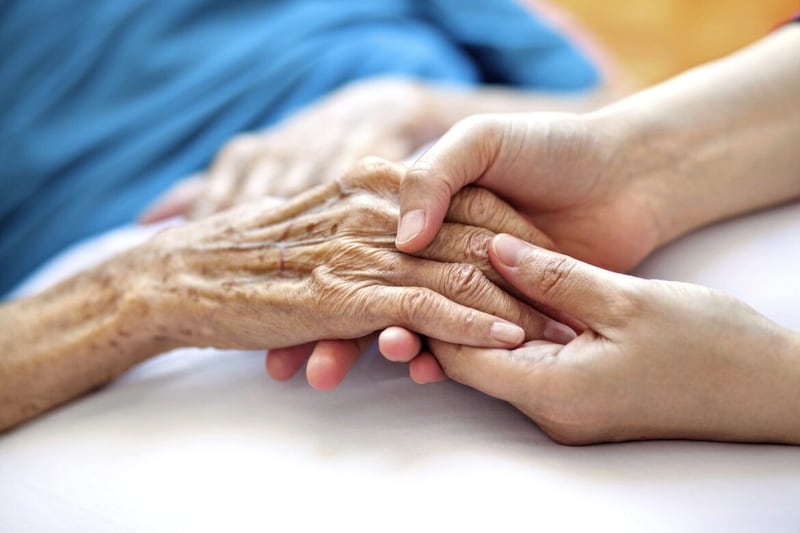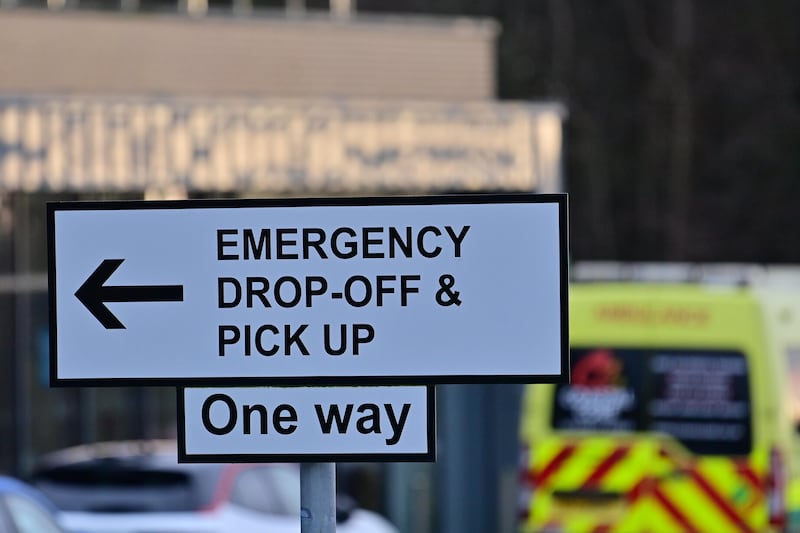A woman in her 70s died on a trolley at the Royal Victoria Hospital (RVH) in Belfast on Friday night while waiting to be admitted.
It is believed she had been taken from a care home for treatment and was in the waiting area for some hours before she was found unresponsive by staff.
The woman's family was then informed by telephone.
The death occurred as the Belfast trust reported on Sunday its emergency departments had faced an "exceptionally busy" period.
A spokesperson for the Belfast trust offered "condolences to this patient’s family", adding: "Our thoughts are with them at this difficult time."
It comes as another Northern Ireland hospital warned that its emergency department is facing “extreme pressure”.
The South Eastern Health Trust said that 164 patients are in the emergency department (ED) at the Ulster Hospital near Belfast, with 53 waiting to be admitted.
A health chief on Saturday night said that the doors of Antrim Area Hospital were closed to new admissions after conditions had become unsafe.
As hospitals across Northern Ireland continue to deal with capacity issues, the Ulster Hospital became the latest to warn that patients in Accident and Emergency will endure a long wait.
In a tweet on Monday afternoon, the South Eastern Health Trust said: “The Ulster Hospital Emergency Department is under EXTREME PRESSURE.
“164 patients are in our department, 53 awaiting admission.
“If your condition is NOT life threatening you will endure a long wait.”
Jennifer Welsh, chief executive at the Northern Health Trust, said the situation in the emergency department at Antrim Area hospital on Monday remained “extremely pressured”.
A major incident was declared at the weekend when a high number of critically ill patients arrived in quick succession at the Co Antrim hospital, prompting the decision to temporarily close the doors to new admissions.
Ms Welsh said there were 45 patients in the ED on Monday for whom a decision to admit had been made, but for whom no bed is available.
She told the BBC Good Morning Ulster programme: “That would have been unthinkable about four or five years ago, we would have never seen numbers like that.
“Unfortunately coming in to 45 DTAs (decisions to admit) in the morning is now pretty much normal business and that is not acceptable.
“The situation remains extremely pressured, not just in Antrim but right across many of Northern Ireland’s emergency departments.”
She added: “They (the patients) are waiting within the emergency department. Many of them will be in single rooms within the emergency department, but there are many other people who are in corridor beds.
“Antrim is well known in terms of not having enough beds. We do have extra beds commissioned but they won’t be coming until the end of February.”
Referring to the decision to call a major incident on Saturday night, Ms Welsh said pressure had been building for days.
She said: “We had a high number of people arriving. A very high number of patients in the department.
“At the time we called the incident there were 131 patients and about 66 of them had a decision to admit and no bed available.
“At that stage our resuscitation unit was already full, it was over full.
“Then we got the news we had three more standby ambulances coming in. That is critically ill patients who had to be brought into our resuscitation department as quickly as possible and we simply could not cope.
“The safest thing to do in those circumstances is to call the major incident, to effectively close the door and what that means is that people are conveyed to the next nearest emergency department to ensure they begin the urgent treatment that they need because we were not able to do that.
“It was the right call to say that it was unsafe. It was unsafe at that time.”
The incident is the latest to hit Northern Ireland’s health service, which is facing significant budget constraints and spiralling waiting lists.
On Sunday, the Belfast Health Trust appealed for available nursing staff to go to hospitals to help alleviate pressures.
On Monday, the Western Trust said Altnagelvin Hospital, in Derry, was under extreme pressure and urged the public only to attend the ED in emergency or life-threatening situations.
In a statement the Department of Health said it remained “deeply concerned” about the situation in hospitals and across the health and social care system.
“The regional planning for winter pressures has been spelt out publicly and in detail,” it said.
“It has always been clear that these plans will only mitigate the problems, rather than resolve them. The fundamental reality is that we have a serious mismatch between demand for care and the capacity of the system to provide it.
“Neighbouring jurisdictions are facing similar challenges.
“We need everyone across society to support our health service in every way they can. Hospitals do not have unlimited capacity and it is imperative that when patients have been deemed medically fit they leave the hospital setting.
“Every delayed discharge means a bed is being withheld from a very sick person waiting in an emergency department or in an ambulance outside a hospital, and further impacts on the system’s ability to respond to need in the community.”
